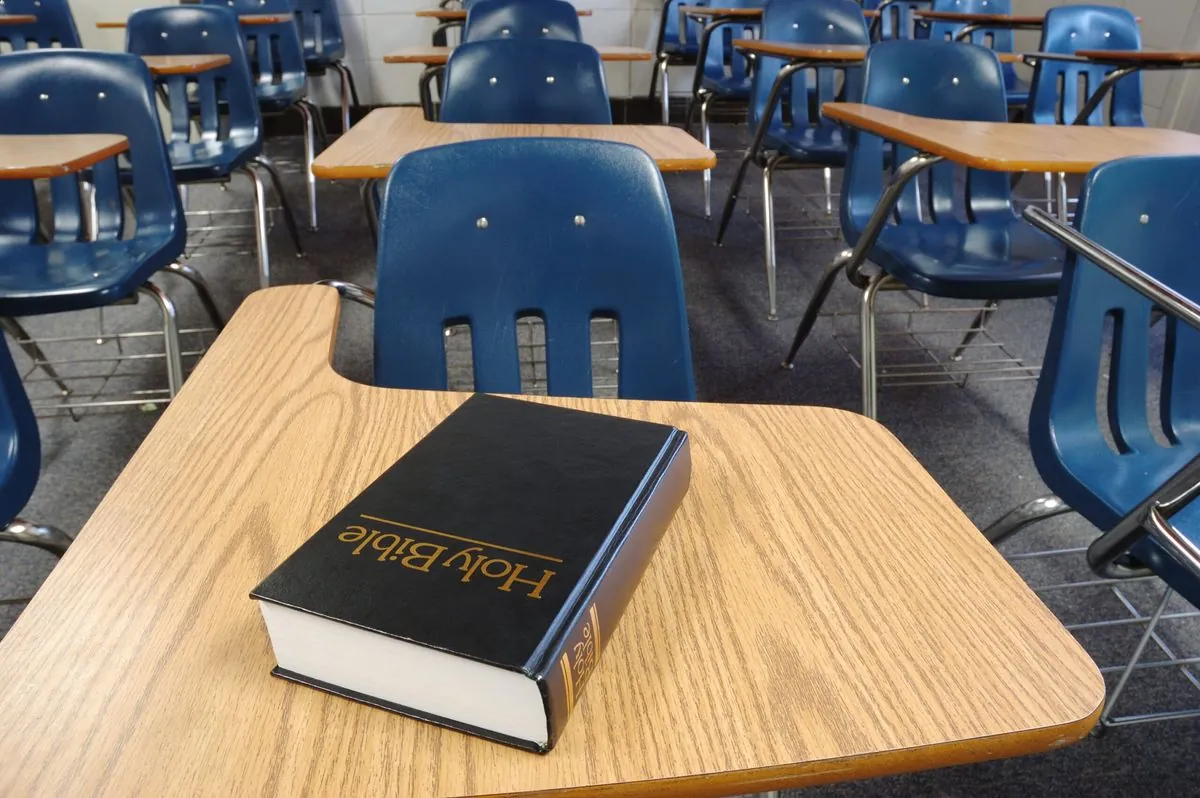Oklahoma's education department has initiated a plan to procure 55,000 Bibles for classroom use, a move that has ignited a heated debate about the role of religion in public education. The state's request for proposals includes specific requirements that appear to favor a particular Bible edition, raising questions about the motivations behind this initiative.
The proposed Bibles must meet several criteria:
- King James Version
- Inclusion of founding documents (Declaration of Independence, U.S. Constitution, Bill of Rights)
- No commentary or study guides
- Leather or "leather-like" binding
These specifications have led some to speculate that the requirements may be tailored to a specific Bible edition endorsed by Donald Trump, the GOP presidential nominee. This particular Bible, priced at $60, includes the requested historical documents and aligns with the binding requirements.
Ryan Walters, Oklahoma's Schools Superintendent, has been a driving force behind this initiative. He has mandated Bible teaching in all state public schools, describing it as a "necessary historical document to teach our kids about the history of this country." This decision has faced opposition from some school districts and has raised constitutional concerns.
The push for Bible inclusion in classrooms comes amid a broader context of religious influence in Oklahoma's education system. Walters has advocated for posting the Ten Commandments in schools and supported a state-funded Catholic charter school, a move that was deemed unconstitutional by the state Supreme Court.
Critics argue that this initiative blurs the line between church and state. John Waldron, a Democratic state representative, expressed concern that the proposal might be designed to specifically purchase Trump-endorsed Bibles, potentially providing political benefits to Walters.
The Bible's influence on literature and history is undeniable. As the best-selling book in history, with estimated sales exceeding 5 billion copies, its impact on Western civilization is profound. The King James Version, first published in 1611, has particularly shaped the English language and literature.
However, the integration of religious texts in public education remains a contentious issue. The First Amendment to the U.S. Constitution prohibits the establishment of religion by the government, a principle that has been the subject of numerous Supreme Court cases regarding religion in public schools.
The requested Bibles are to include foundational American documents. The Declaration of Independence, adopted on July 4, 1776, the U.S. Constitution, signed on September 17, 1787, and the Bill of Rights, ratified in 1791, are cornerstones of American democracy. The Pledge of Allegiance, another required inclusion, was written in 1892, with the phrase "under God" added in 1954.
While the Bible has been translated into over 700 languages and has influenced countless works of art, literature, and music, its place in public education remains a subject of debate. The study of the Bible as literature is a recognized academic field, but its use in public schools must navigate complex legal and ethical considerations.
As Oklahoma moves forward with this controversial plan, the outcome will likely have implications for the ongoing national conversation about the intersection of religion, education, and politics in America.
"The Bible is a necessary historical document to teach our kids about the history of this country."
This statement encapsulates the core argument for including the Bible in public education, framing it as a historical rather than religious text. However, it also highlights the delicate balance educators must strike when addressing religious texts in a secular educational context.
